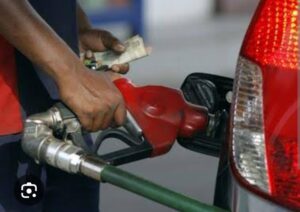

By Dada Ahmed in Lokoja.

Photo credit:My Motor Nigeria.
Residents of Lokoja, Kogi State capital, north central Nigeria were outraged on Tuesday, following a dramatic increase in petrol prices by N280 representing about 45.3 per cent
Our correspondent reports that the NNPCL raised the price from N617 to N897 per litre, prompting widespread frustration.
Many filling stations in Lokoja halted sales, leading to a shortage of petrol and leaving commercial motorcyclists and kekenapep operators struggling to find fuel.
This shortage exacerbated passenger frustrations, with many left stranded while others took to their feet to accomplish short trips.
The price hike has had a substantial impact on transportation costs with multiplier effects on economic and social activities in the area.
A journey from Ganaja to New Market, previously costing N500, now stands at N700.
Commercial motorcycle fares have surged by 40% across the city.
At the few stations still selling petrol, prices range from N950 to N1,000 per litre, while black market prices have soared to between N1,200 and N1,500 per litre.
Traders in Lokoja’s markets have also been affected, with prices for foodstuffs rising sharply.
Mal. Sani Mohammed, who sells rice and beans at the old market, explained that he increased his prices merely to cover costs due to the higher transportation expenses.
The ripple effect extends to neighboring Federal Capital Territory (FCT) residents, with motorists experiencing similar difficulties.
The News Agency of Nigeria (NAN) reported that NNPC Retail Management approved the price increase from N617 to N897 per litre, effective September 3, amid ongoing economic challenges and fuel shortages.
The independent marketers also raised their prices to between N930 and N1,200 per litre. This has led to a reduction in commercial vehicles on the roads, and stranded commuters, including civil servants.
The Nigeria Labour Congress (NLC) has condemned the price increase, claiming it violates previous assurances made during the minimum wage negotiations.
The NLC President,Joe Ajaero, criticized the government’s handling of the subsidy removal, describing the situation as “traumatic and nightmarish” and argued that the lack of adequate planning has worsened the economic hardships faced by citizens.


